Summer Course 2019

NIH-Sponsored Short Course in Adaptive Neurotechnologies
Applications are now closed.
Albany, New York
July 8-26, 2019
This comprehensive three-week Course is funded by NIH. The 24 successful applicants will receive support for tuition, room and board, and a stipend for travel.
Adaptive Neurotechnologies
The rapidly growing field of adaptive neurotechnologies applies recent advances in neuroscience and engineering to establish real-time adaptive interactions with the nervous system that enable new scientific understanding and generate new therapeutic and diagnostic methods. Examples include brain-computer interfaces, deep brain stimulation, and operant conditioning of spinal reflexes. The realization of these technologies involves neuroscience, biomedical engineering, signal processing, mathematics, computer science, and clinical and commercial domains. Thus, their development and dissemination require leaders with knowledge and expertise that span all these disciplines.
The Goal of this Short Course
This Course will provide a select group of scientists, engineers, and clinicians with the multidisciplinary knowledge and expertise needed to guide the development of new adaptive neurotechnologies from conception through laboratory and clinical evaluation to dissemination and use for important scientific or clinical purposes. The goal is to create the next generation of leaders in this burgeoning new field.
The course combines lectures, hands-on training, and integrative experiences. The first week provides a series of topical lectures stressing basic principles. They address: neuroscience (neuroanatomy and physiology with emphasis on sensorimotor function); engineering (signal acquisition and processing, hardware and software); and theory and application of adaptive neurotechnologies (for restoring, replacing, enhancing, supplementing, or improving nervous system function). The second week provides practical demonstrations and hands-on training in the design and realization of representative adaptive neurotechnologies. The final week is devoted to clinical translation (target populations, clinical trials); commercialization (regulation, intellectual property, funding); ethical/legal issues; and case studies of adaptive neurotechnology development.
What will the Course Participants Gain?
- Comprehensive grasp of the basic theory and practice of adaptive neurotechnologies.
- Understanding of the scientific and clinical potential of these technologies.
- Access to a distinguished network of potential mentors and collaborators.
Who is eligible?
- U.S. citizens or permanent residents; others who are students or staff at U.S. institutions.
- Full-time availability July 8-26, 2019.
Who should apply?
Early to mid-career scientists, engineers, or clinicians (e.g., junior faculty, postdoctoral fellows, clinical residents or fellows, graduate or medical students).

